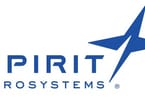The Tuesday congressional hearing on airlines’ consumer practices might feature a lot of talk on issues like overbooking and passenger compensation, but one major issue underlies major carriers’ recent foibles: dwindling choice in the aviation marketplace.
One of the four biggest domestic airlines (American, Delta, Southwest and United) currently controls over 50 percent of seat capacity on flights out of 155 U.S. airports—and 74 of those are 100 percent dominated by one of those airlines, according to data released Monday by the U.S. Travel Association.
This status quo hardly gives airlines an incentive to treat their customers with care and respect at every turn, points out U.S. Travel Association Executive Vice President for Public Affairs Jonathan Grella.
“For too long, the proverbial fox has been in charge of the policymaking henhouse,” said Grella. “Big airlines come to Washington, plead financial frailty and demand that they be given every advantage, then go to Wall Street and report record earnings.
“We all should want U.S. airlines to be healthy and profitable, but for too long they’ve dominated aviation policymaking at the expense of the traveling public, and the moment to reverse that trend has clearly arrived.”
Nationwide, the four biggest airlines control nearly 69 percent of domestic seat capacity. Internationally, the Big Three U.S. legacy carriers (American, Delta and United) and their joint venture partners control 82 percent of seat capacity on trans-Atlantic flights.
Meanwhile, nearly 60 percent of U.S. airports have lost routes over the last decade.
U.S. Travel released its seat capacity analysis ahead of the Tuesday hearing of the U.S. House Committee on Transportation and Infrastructure at which numerous airline executives are slated to testify.
The data is part of U.S. Travel’s forthcoming aviation policy blueprint, which will use intensive research to identify problems in the U.S. passenger aviation marketplace and recommend policy solutions to address them.
Many of the single-airline-dominated airports cited in U.S. Travel’s data are in or around districts represented by Transportation and Infrastructure Committee members.
Said Grella: “Recent unfortunate incidents have focused public and policymaking attention on an important pillar of the U.S. economy—the air travel system—that has long been showing alarming cracks. Lawmakers need to understand that they can address some of these issues with free-market, pro-growth reforms rather than by just imposing new regulations, and we are hoping that’s what this hearing reveals.”
Among U.S. Travel’s policy recommendations for enhancing competition:
• Protect and expand U.S. Open Skies agreements, and keep government regulation out of the marketplace. Doing so has lowered fares by 32 percent and saved travelers an additional $4 billion per year.
• Rigorous and consistent review of antitrust immunity granted to airlines to ensure these policies are benefiting travelers and encouraging new entrants into the U.S. aviation marketplace.
• Invest in airport infrastructure and restore local control of airport expansion projects by allowing airport authorities to set Passenger Facility Charge rates, which are currently capped at $4.50 and have not been changed since 2000. Doing so allows airports to expand as needed and enables other airlines to compete in that market.
• Let airports partner directly with destinations and airlines to market and develop new air service routes. Federal regulations currently prohibit airports from using their own revenues to work on expanding air service through destination marketing and cash incentives to airlines. Lawmakers should allow airports to partner directly with destinations and airlines themselves to attract more flight options.
WHAT TO TAKE AWAY FROM THIS ARTICLE:
- airlines to be healthy and profitable, but for too long they’ve dominated aviation policymaking at the expense of the traveling public, and the moment to reverse that trend has clearly arrived.
- One of the four biggest domestic airlines (American, Delta, Southwest and United) currently controls over 50 percent of seat capacity on flights out of 155 U.
- • Rigorous and consistent review of antitrust immunity granted to airlines to ensure these policies are benefiting travelers and encouraging new entrants into the U.






















